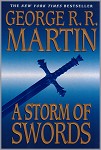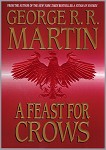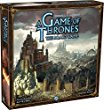The Noble |
|
The Noble lords of the great houses of Westeros control the fate of the Seven Kingdoms, affecting all those beneath them with every decision and action made. Nobles may be fat merchants sitting behind the thick walls of a granted keep or men born of noble blood, whose lineage spans thousands of years. Nobles rule over the smallfolk within their territory through a system of fealty and sworn oaths that further divides their kingdoms. Not all Nobles rule over great kingdoms, though; there are minor lords scattered in keeps and holdfasts in every region of the Seven Kingdoms. Also, being highborn does not give one a noble heart, as Nobles are responsible for some of the most heinous acts in the history of the realm, corrupted by the power intrinsic to their station. AdventuresNobles are always in danger from the intrigues of other nobility as well as the unrest of the smallfolk that fall under their banners. The former is far more dangerous, as infl uential enemies know and have access to more devious ways to harm a noble than do the smallfolk — methods that even an army of loyal knights cannot stop. This leads them to either isolate themselves as best they can from the politics of the Seven Kingdoms, or to throw themselves fully into the game of thrones. In either case, the life of a Noble is never far from adventure and danger. CharacteristicsNobles can call upon the vast resources of their houses to see them through dangerous situations, and the support of other noble houses can almost always be counted upon in lean times. Nobles have many loyal followers that will do as they ask, willing even to give their lives in defence of their lord. Becoming a NobleIf a player wants his or her lowborn character to enter the nobility, a significant deed or service should be required during the story, whereby the character earns a granted title and possibly lands. Normally, only the king may raise someone’s status so high, but if a major lord is championing the character’s cause this may be only a formality. In game terms, the character needs a Social Status of least Rank 3 before he or she can take a Level in the Noble Class. A character’s Social Status Rank can be increased through the Raised Status and Wealth Feats, which may be acquired normally, or may be given by the GM either for free, or in return for a Defect (or Defects) of equivalent value. If a character is rewarded with lands and titles during the course of the campaign, the character should take at least one Level in the Noble Class when he or she gains the next Level; alternatively, the character may become a Noble “in name only,” (i.e., he or she does not gain a Class Level and is likely seen as upjumped rabble). A character whose Wealth is lower than the rest of his or her family may be regarded as an impoverished cousin. Similarly, it is rare for a character to be welcomed into a noble family whose status is higher than the character’s, but if this were to happen due to special circumstances, the character would likely be seen as a distant cousin or from a cadet branch of the house. Sons vs. DaughtersMost Noble sons will be given martial training. This means that after 1st Level, many will multiclass into Man-at-arms. Those who follow the path of the warrior will often train for either the Knight or Commander Prestige Class. If he doesn’t multiclass early on, the Noble should consider gaining the Weapon Proficiency (Martial) Feat. Noble daughters will often use Feats for Political Connections and other social Feats. They rarely learn how to use martial weapons or heavier armours, unless they are willful and overly adventurous. Noble daughters will often multiclass to Artisan, Knave, or the Spy Prestige Class. Those with a calling to the Faith may become Godsworn. Of course, those that defy expectations may take Levels in Hunter, Man-at-arms, Commander, or Water Dancer. OriginSome Nobles are born into the legacy of one of the great houses of the Seven Kingdoms, while others are granted title and lands for service to the King. Nobles must play a dangerous game of intrigue, however, and the closer one is to power, the more deadly the game becomes. BackgroundAll highborn characters should take at least 1 Level of Noble as their first Class. Nobles are the rulers of their great houses, commanding all beneath them. Sons lean towards skill at arms while daughters learn the courtly virtues, but both can be equally deadly in the games of politics. Even the smallest of lords commands great respect among the smallfolk, while the world seems to tremble beneath the boots of the great lords. AbilitiesCharisma determines the strength of a Noble’s charm and personality, something every Noble must hone if he or she hopes to further his or her interests. Strength and Dexterity are important if a Noble seeks to prove his puissance of arms in a grand melee or tournament joust. These traits also help the Noble on the battlefield when he is called to support his lord, or when he must lead his bannermen into battle to protect his claims and interests. Intelligence and Wisdom, meanwhile, are of crucial importance for those who wish to play the game of thrones. Hit PointsNobles gain 8 Hit Points at 1st Level, and 2 Hit Points per Level thereafter. The character’s Constitution Modifier applies. Class SkillsThe Noble’s Class Skills (and the key Ability for each Skill) are: Appraise (Int), Bluff (Cha), Craft: Domestic Arts (Int), Decipher Script (Int), Diplomacy (Cha), Forgery (Int), Gather Information (Cha), Intimidate (Cha), Knowledge: Foreign Culture (Int), Knowledge: History (Int), Knowledge: Legends (Int), Knowledge: Local Area (Int), Knowledge: Nobility (Int), Knowledge: Religion (Int), Knowledge: Stewardship (Int), Knowledge: Warfare (Int), Perform (Cha), Ride (Dex), Search (Int), Sense Motive (Wis), Speak Language (None), Swim (Str). Skill PointsAt 1st Level, Nobles gain (6 + Int Modifier) x 4; humans gain +4 bonus Influence PointsAt each Level, Nobles gain 8 + Cha Modifier. Weapon and Armour ProficiencyNobles are proficient with all simple weapons. Nobles are proficient with light armour. Note: Noble daughters may choose to substitute an alternate Feat for Armour Proficiency (Light). See Inept Attack. Bonus Class SkillNobles learn a variety of Skills from the Maesters and Godsworn that tend to them as they grow up. Sometimes these Skills are superfluous to the Noble’s goals, but other times they aid the Nobles in unexpected ways. Thus, at 1st Level, the Noble character can designate any two Cross-Class Skills as Class Skills. Once designated, these Skills are always considered Class Skills. LiteracyNobles must be able to communicate effectively with other lords and Nobles across the land, gaining the Literacy Feat at 1st Level. Noble EducationNobles are trained in the proper courtly forms from an early age. Both sons and daughters are tutored in both intellectual pursuits and social arts. At 1st Level, the Noble character gains the following Skill Ranks: Knowledge: History 2 Ranks, Knowledge: Nobility 3 Ranks, Knowledge: Stewardship: 2 Ranks, and Perform (any) 2 Ranks. The character can designate any Specializations, and may spend additional Points on these Skills up to the character’s maximum Skill Rank. Bonus FeatNobles have greater opportunities than the common folk of Westeros. Consequently, at 2nd Level, they may choose any bonus Feat for which they meet all prerequisites. The Noble chooses another bonus Feat at 8th, 11th, 13th, and 19th Levels. Noble StandingNobles are well connected to many individuals and groups, providing them with additional Influence. At 2nd, 6th, 10th, 15th, and 18th Level, the Noble gains +4 additional Influence Points to allocate as desired. MandateNobles wield tremendous power in the Seven Kingdoms. They have many allies who command influence, wealth, and military might. At 3rd Level, Nobles have improved their ability to call upon their Influences. They gain a +1 bonus to all Influence checks, and also reduce the penalties in situations where they have no Influence by 1. The Noble’s Mandate bonus increases to +2 at 5th Level, +3 at 7th, +4 at 12th, and +5 at 16th. CommandThe Noble can co-ordinate a small group of characters in a co-operative task by making a Charisma check (DC 15 + the number of characters commanded). This increases the bonus granted by the aid another action by an additional +2. This increase goes up by two (+4, +6, and so forth) each time it is gained again. Commanding other characters takes as long as the task they are attempting (minimum one full round).
|
|||||||||||||||||||||||||||||||||||||||||||||||||||||||||||||||||||||||||||||||||||||||||||||||||||||||||||||||||||||||||||||||||||||||||||||||||||||||||||||||||||||||||||||||||||||||||||||||||||||||||||||||||||||||||||





















